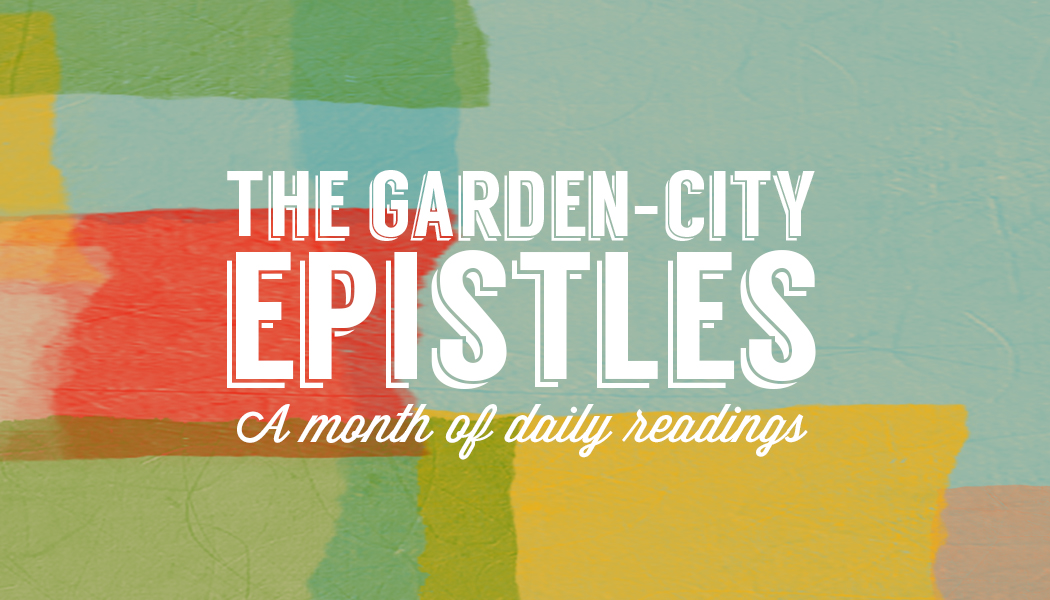This letter is for Joanne McCracken, who once told me I’d never be able to run her out of Westwinds. I’ve never tried, or even wanted to, but I’ll always admire her spunky commitment to our church.
For as long as you’ve been alive, you’ve craved meaningful connection. That’s normal. We’re all like that, but with you, I think maybe there’s an extra bit of oomph behind that drive for togetherness.
That’s what’s behind all the stuff we do in our churches and with our families: togetherness. That’s why we inflict road trips on one another, why we force ourselves to go to parties, and why we look forward to Thanksgiving. We aren’t made to be alone.
There’s nothing worse than feeling alone in the middle of a crowd. I think that’s why so many of our social events hold such terror. We want to be with other people—really with them—but, at the same time, we’re frightened that we might get around other people and discover they don’t really want to be with us.
Take heart. Like I said, we’re all the same.
In Eden, God gifts imagination, vocation, and connection to God’s people. That connection doesn’t just tether us to him, though that is where it starts. We connect to God, and through God, to others. This sequence is critical. Whenever we strive for connection with others without first connecting to God we neglect both our origin for being and our engine for becoming. We forget that we are, first, God’s. Within such memory lapse, we find ourselves often at the mercy of other peoples’ opinions, remarks, and reactions. If other people don’t like us, we become insecure; if other people are unkind, we are wounded; if other people are intimidating, we become defensive and shy. But with God—when we root ourselves in him, in his love, in his command to perpetuate Creation—we remember all things are possible,[1] we are more than conquerors,[2] we are royalty,[3] possessing gifts[4] and insights and wisdom far beyond what we have earned.
We begin, again, with God.
Our relationships with others are formed and funded by our relationship with God. We can love them because we see him in them, regardless of whether they recognize they are shadowing God. We see his Law in their virtue, just as we see the requirement of his grace evidenced by their flaws. God corrects our vision, removing the distortion of others so we can see them as he sees them, as people worthy of dignity and love.
But they’re not the only ones to whom our love must extend. “Love your neighbor as yourself”[5] implies that we must love ourselves. We must learn to see God at work inside us so we can recognize God at work in others. If you can’t see him in you, how can you be expected to see him in them? And don’t worry about this deteriorating into ego. If you pour molten gold into a red Solo cup, no one—not even the cup—is deceived about the fact that the value remains with the gold.
We must also love Creation—not just the ecology, but also the culture and diversity of our world. We must care for the planet[6], but we must also care for what happens on the planet. Our love for mountains and our love for movies are both manifestations of a healthy love of Creation; our love of city streets and our love of the Straits of Mackinac both reveal our commitment to the things God has made that we have continued to create.
You have often lamented that our world has lost the true value of relationships. We’ve talked about the fragmentation in our society and the isolation inherent in our suburban neighborhoods; we’ve noticed the inability of younger people to hold meaningful conversations without their thumbs blisteringly smashing their screens; we’ve wondered what the future holds for God’s people in this increasingly fragmented world. But, in the midst of all our worries, I am convinced that the very thing God supplied through these connections in the beginning he continues to supply now: protection.
When we are connected to God we are protected by his presence. He is our refuge and our strength, our present help in times of trouble.[7] That’s the ultimate connection, the ultimate gift of Eden—knowing we are never truly alone.
[1] Mark 10.27.
[2] Romans 8.37.
[3] 1 Peter 2.9.
[4] 1 Corinthians 12.
[5] Matthew 22.39.
[6] The Hebrew words for “man” and “earth” share a root: a‘dam (man) and a‘damah (earth) demonstrate the relationship-by-design of people and planet.
[7] Psalm 46.1.
fossores
Related posts
Categories
Category Cloud
Tag Cloud
Recent Posts
- Victors and Victims November 6, 2018
- 3 Hacks for Happiness October 29, 2018
- Hope Against Death September 20, 2018
- The Shape Of The Cross September 19, 2018


